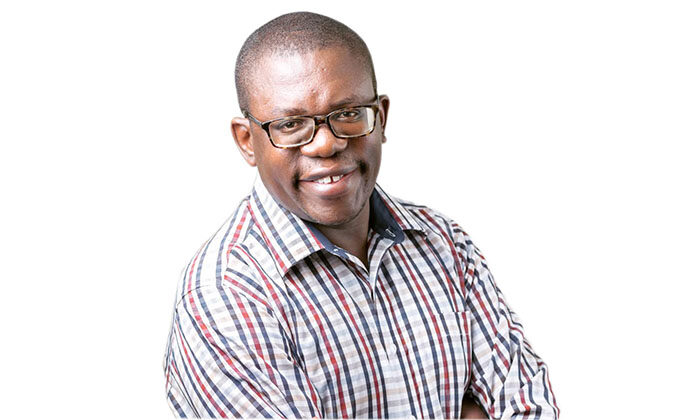
You have heard about it on radio, watched its effects on TV or even read about it in newspapers and magazines. The global financial crisis that started with the US credit crunch is spreading, chewing up businesses, banks, corporations; even nations have been threatened. My focus here is not to add to the existing volume of knowledge on that subject but rather, how do people of faith fair in this. Now that’s a very wide topic and I’ll just take a pick from the sermon series I’m currently teaching at church. First of all, the good news is here:
“Blessed is the man who trusts in the LORD, And whose hope is the LORD. For he shall be like a tree planted by the waters, Which spreads out its roots by the river, And will not fear when heat comes; But its leaf will be green, And will not be anxious in the year of drought, Nor will cease from yielding fruit.” Jeremiah 17:7-8, NKJV
External conditions like the economy are not what determine the fruitfulness of the people of God, but rather their trust in Him. There is nothing of the world that is eternal, tangible or not. All things born of the world, even economic systems have a birth, lifecycle and death; but our inheritance is in an everlasting Kingdom.
Secondly, we know that God’s will for us is to be rich, why? so that He, through us may establish His covenant of eternal life; forgiveness, deliverance, health and prosperity. The reason God wants us rich is so that we may give people and live out the message of eternal life, both in proclamation and action.
“And you shall remember the LORD your God, for it is He who gives you power to get wealth, that He may establish His covenant which He swore to your fathers, as it is this day. NKJV 2 Corinthians 8:9 9 For you know the grace of our Lord Jesus Christ, that though He was rich, yet for your sakes He became poor, that you through His poverty might become rich.” Deuteronomy 8:18, NKJV
Eternal investments:
Let’s take a look at one of Jesus’ ‘difficult’ parables. It’s difficult because it does not fit within the traditional religious moralist thinking, especially for those who think He was just a moral teacher.
Luke 16:1-11, NKJV
“He also said to His disciples: “There was a certain rich man who had a steward, and an accusation was brought to him that this man was wasting his goods. So he called him and said to him, ‘What is this I hear about you? Give an account of your stewardship, for you can no longer be steward.’ “Then the steward said within himself, ‘What shall I do? For my master is taking the stewardship away from me. I cannot dig; I am ashamed to beg. I have resolved what to do, that when I am put out of the stewardship, they may receive me into their houses.’ “So he called every one of his master’s debtors to him, and said to the first, ‘How much do you owe my master?’ And he said, ‘A hundred measures of oil.’ So he said to him, ‘Take your bill, and sit down quickly and write fifty.’ Then he said to another, ‘And how much do you owe?’ So he said, ‘A hundred measures of wheat.’ And he said to him, ‘Take your bill, and write eighty.’ So the master commended the unjust steward because he had dealt shrewdly. For the sons of this world are shrewder in their generation than the sons of light. “And I say to you, make friends for yourselves by unrighteous mammon, that when you fail, they may receive you into an everlasting home. He who is faithful in what is least is faithful also in much; and he who is unjust in what is least is unjust also in much. Therefore if you have not been faithful in the unrighteous mammon, who will commit to your trust the true riches?”
We learn some straightforward lessons from this story:
1. Whatever it is that we have, we are simply managers. That money, time, talents, gifts, relationships, career, etc belong to the Lord and like a good boss, He will require accountability.
2. If we are wasting what we have on our own selfish desires instead of building the Kingdom (read people), we will lose our stewardship.
3. When we misappropriate Kingdom resources and lavish them on ourselves, we end up in poverty. This steward who was wasting now feared to beg. It means that he had nothing saved in spite of all the misappropriation.
4. Even though he went on to cheat his master even further, he was commended, why? Because, for the first time, he was using money for its true worth, investing it in other people, as a tool to secure his future.
5. Jesus continues to say in verse 9 that if we use money as an investment to transform people’s lives, we’ll have eternal rewards. The only things on earth that will make it to heaven are people, who are in Christ. Every shilling invested in transforming a life makes it to heaven; otherwise it’s just temporary money.
Therefore friends, we have to ask ourselves, are we making eternal or temporary investments? Money is temporary and should be working for us. Unfortunately, many people are spending long nights and days working for money instead. Put your money to work. Invest in changing lives, that’s the real joy of having money. Otherwise, it can just disappear off the stock exchange as we have been seeing. People wake up having lost millions of Dollars, just like that!
“Do not lay up for yourselves treasures on earth, where moth and rust destroy and where thieves break in and steal; 20 but lay up for yourselves treasures in heaven, where neither moth nor rust destroys and where thieves do not break in and steal. 21 For where your treasure is, there your heart will be also.” Matthew 6:19-21, NKJV
It is very easy to get your heart to the heavens. It’s very easy to beat the depression and anguish that surrounds us. It is very easy to taste of the joy and peace of heaven. Invest there. The account number is CHANGING PEOPLE’S LIVES.
Give your gold eternal value, INVEST IT CHANGING A LIFE TODAY
Article first published Here. Moses Mukisa is the founding pastor of Worship Harvest; an influential church with over twelve Campuses on top of one hundred Missional Communities; that are catalysing spiritual, social and economic renewal in their immediate communities and the world. The ministry runs a school; Harvest Academy, a capital business; Harvest Finance, a leadership institute; Harvest Institute, amongst other initiatives. Find more of his articles at mosesmukisa.wordpress.com

